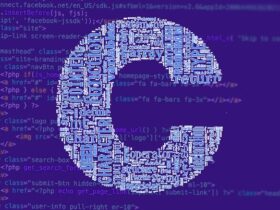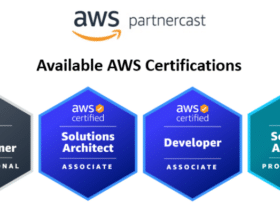Starting a programming journey can feel overwhelming, but the right certification can set beginners on a clear and rewarding path. With countless options available, it’s important to focus on certifications that not only build foundational skills but also hold value in the job market.
The best programming certifications for beginners are those offering entry-level knowledge while validating essential coding skills. These credentials help learners gain confidence, demonstrate expertise, and open doors to career opportunities in tech.
For aspiring developers eager to break into the field, choosing beginner-friendly certifications is a strategic first step toward mastering programming fundamentals and standing out professionally. Ready to uncover which ones could kickstart your success?
1. CompTIA A+
The CompTIA A+ certification is widely regarded as an excellent starting point for beginners in IT and programming. Unlike more advanced certifications, it focuses on foundational skills, making it accessible to individuals with little or no prior experience.
Candidates learn about core concepts such as basic hardware and software troubleshooting, networking fundamentals, security practices, and operational procedures. This makes the certification ideal not just for aspiring programmers but also for anyone entering the broader tech industry.
To earn this credential, learners must pass two exams that evaluate their practical problem-solving abilities. Both assessments emphasize hands-on scenarios to prepare candidates for real-world challenges—a key reason many employers value this qualification highly.
While formal prerequisites aren’t required, having some familiarity with computers or taking a preparatory course can be helpful. Additionally, at an average cost of around €350 per exam (prices vary by location), it’s affordable compared to other entry-level certifications in IT.
2. Microsoft Azure Fundamentals

The Microsoft Azure Fundamentals (AZ-900) certification serves as a perfect entry point for beginners interested in cloud computing and the Azure platform. It introduces fundamental concepts like cloud computing models, security architecture, privacy principles, and cost management within Azure services.
This non-coding-focused credential is invaluable to developers aiming to understand how cloud platforms function before diving into application development or advanced certifications such as Azure DevOps Engineer. The exam consists of 30–50 questions that cover various topics related to workloads, pricing structures, and system capabilities—candidates are given 85 minutes to complete it.
Accessibility plays a significant role with this certification. At an affordable rate of just €99, students can take the exam either online or in person at certified centers without worrying about deadlines because registration remains open year-round. Although there’s no required background knowledge, familiarity with basic IT concepts provides a smoother experience while progressing through study materials like Microsoft’s free tutorials and virtual labs.
3. Python Certified Entry-Level Programmer (PCEP)
The Python Certified Entry-Level Programmer (PCEP) certification is an accessible starting point for those new to programming, especially high school students exploring Python. It’s designed to validate foundational skills in Python, including basic syntax, data structures, loops, conditionals, and functions.
With no prerequisites required, the PCEP exam offers broad eligibility without barriers. The test format includes 30 questions that fall into multiple types such as single- or multi-selects and drag-and-drop tasks within a short timeframe of 40 minutes (+5 minutes for NDA/tutorial).
4. Oracle Certified Associate (OCA)

The Oracle Certified Associate (OCA) is an ideal starting point for aspiring Java developers, offering foundational knowledge that’s essential in the software development field. As the entry-level certification in Oracle’s Java pathway, it emphasizes key programming concepts like data types, operators, loops, and methods.
This certification specifically tests candidates on their ability to write efficient code while adhering to best practices. The most common exam—Java SE 8 Programmer I (Exam Code: 1Z0-808)—covers a broad range of topics such as arrays, string manipulation, oops principles like inheritance and polymorphism, and APIs for collections and calendars.
Beyond providing technical validation, earning this credential signals proficiency in handling Java basics with precision. It typically requires around 120 hours of preparation time but offers excellent value by opening doors to advanced certifications like OCP or job opportunities within tech industries worldwide.
5. AWS Certified Cloud Practitioner
The AWS Certified Cloud Practitioner certification is one of the most accessible options for beginners stepping into cloud computing and Amazon Web Services (AWS). It’s perfect for individuals with zero technical expertise or prior experience, making it a true entry-level credential.
This exam, known as CLF-C02, evaluates foundational knowledge about AWS’s value proposition, billing models, security practices, support offerings, and major services like EC2 and S3. Unlike more advanced certifications that dive deep into technology stacks, this one offers a high-level overview suited for all roles—not just IT professionals. Beginners in sales, marketing, project management, or even leadership can benefit from obtaining this certificate.


















